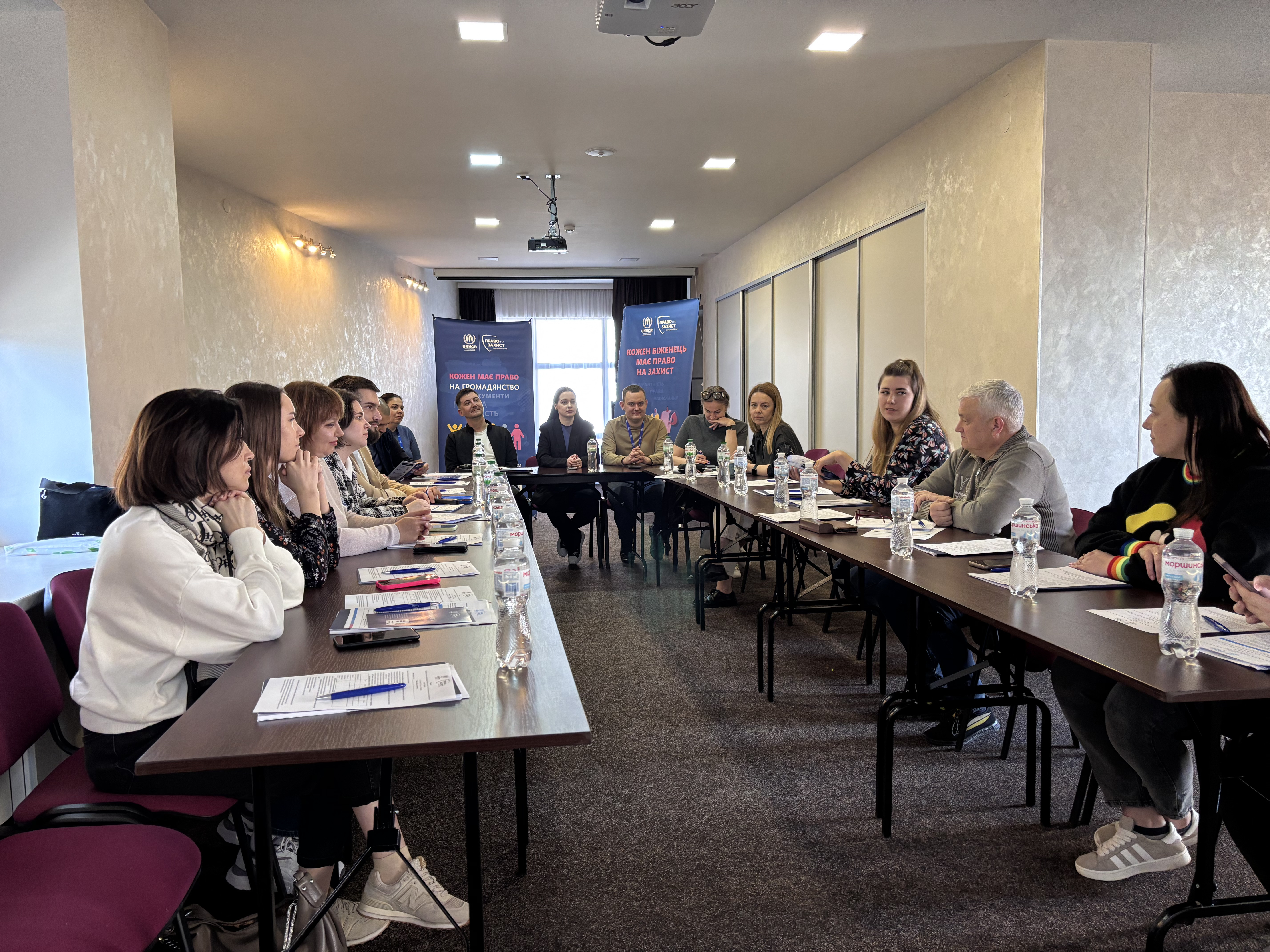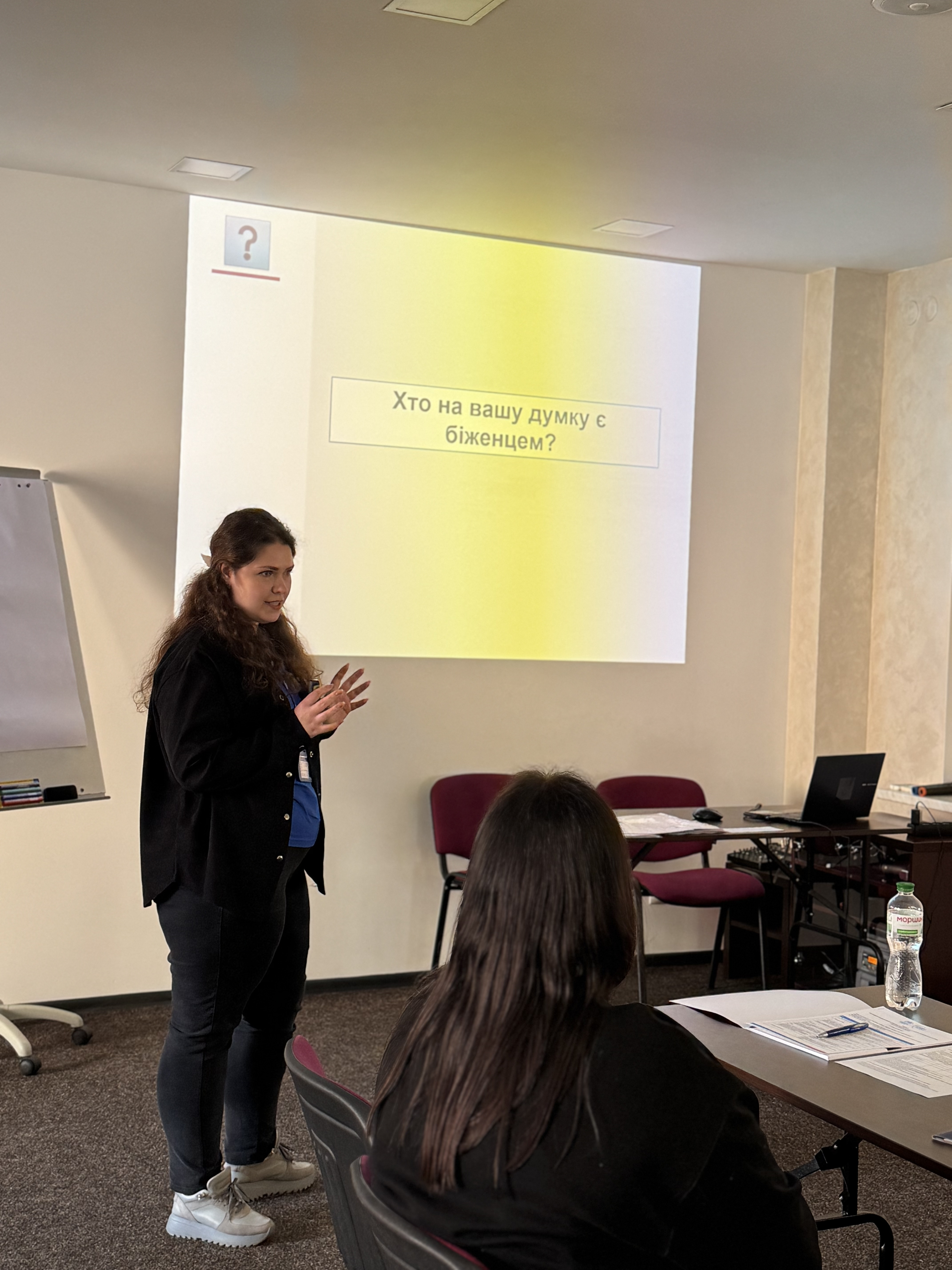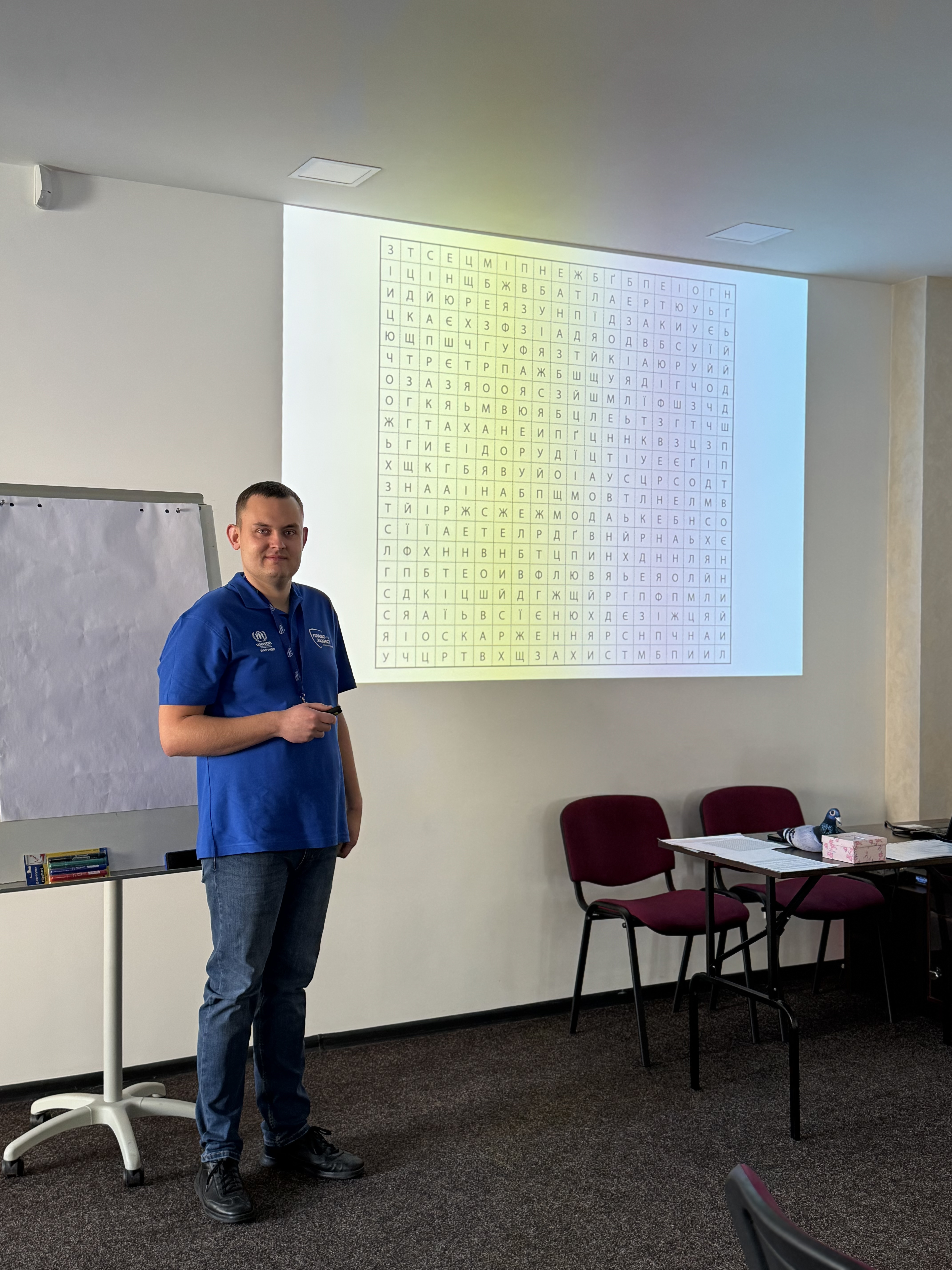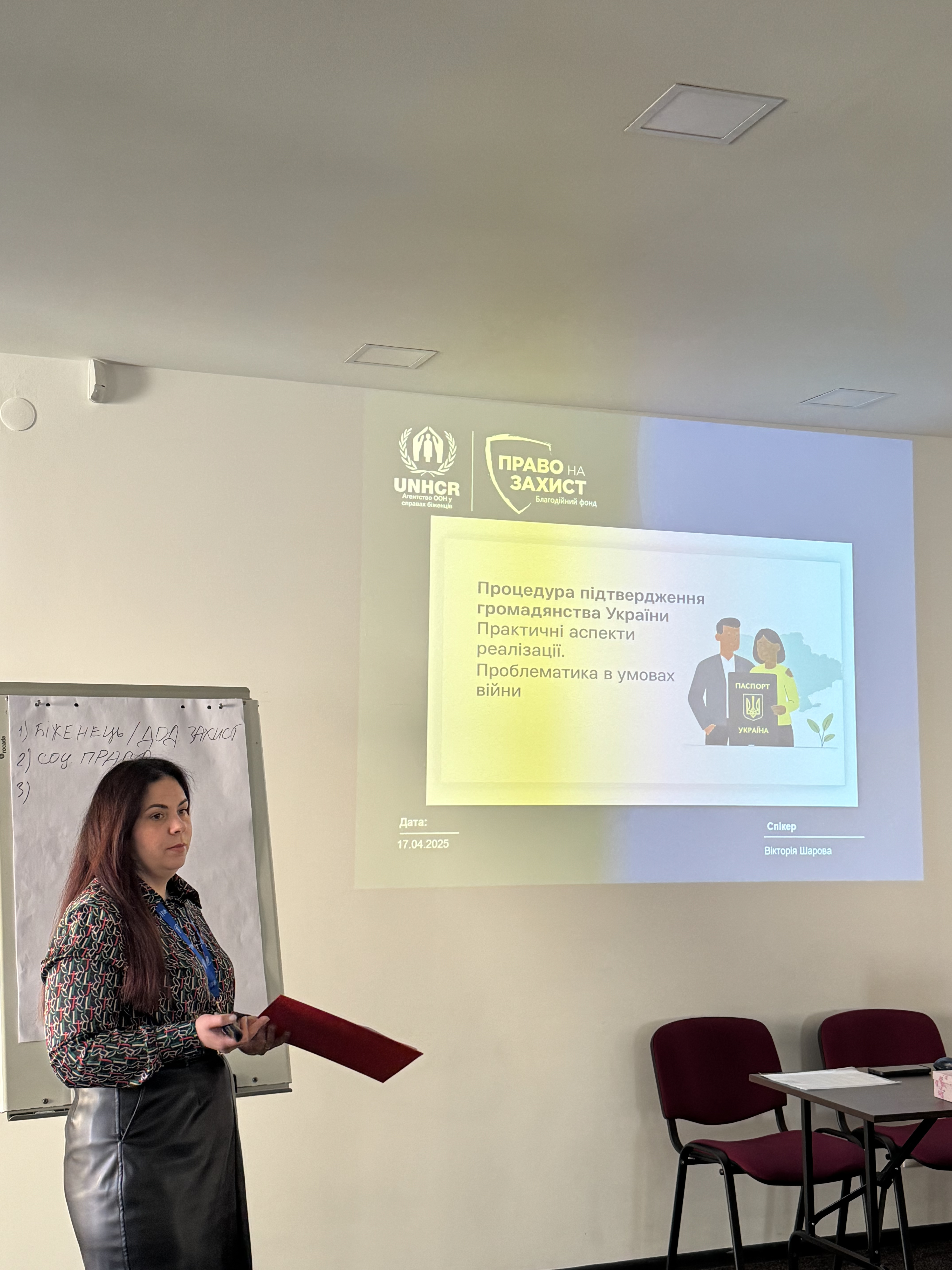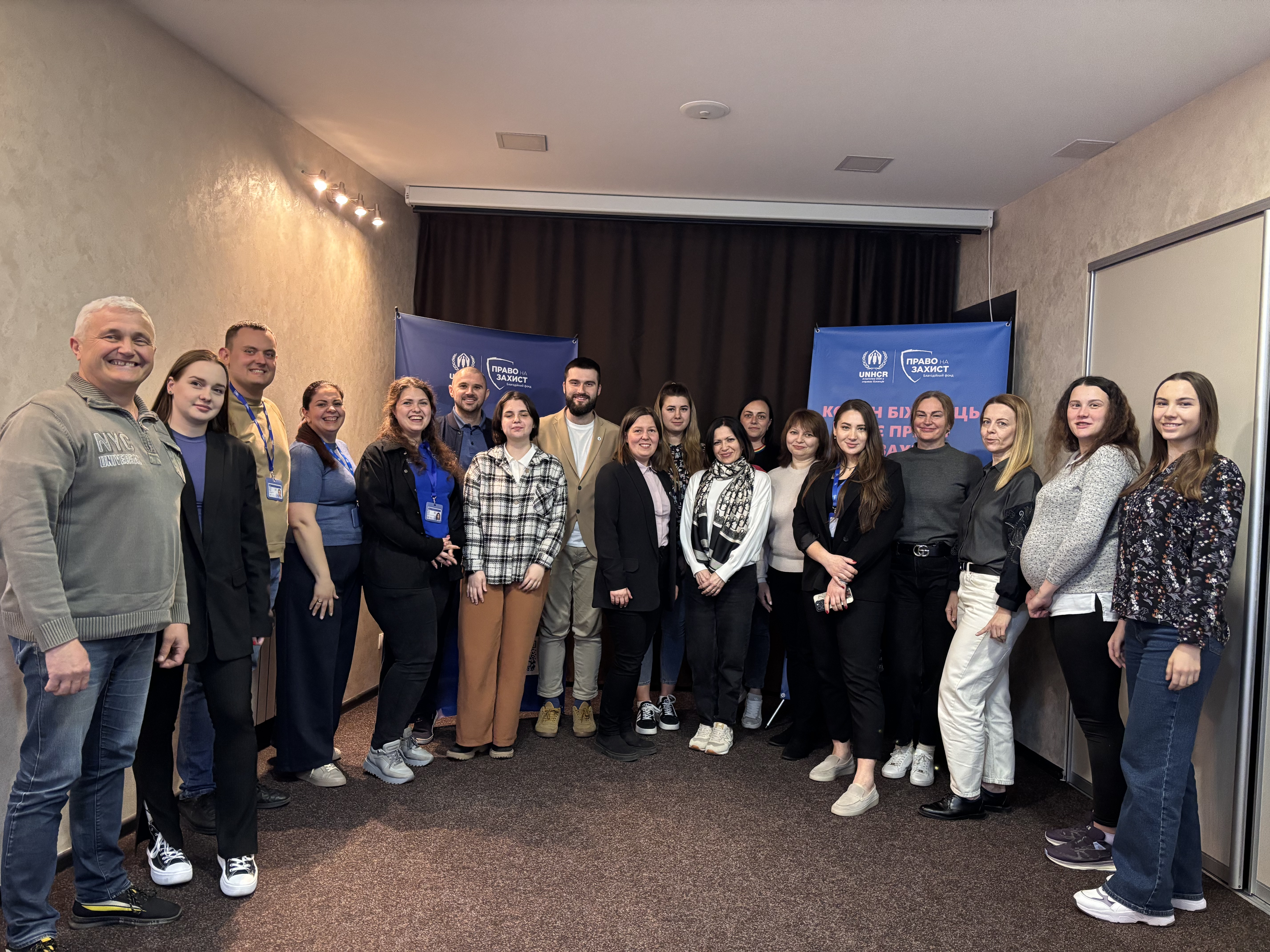-
Unfortunately, nothing was found for your request, you can search for another keyword, or contact us with your question through the feedback form
Search results (25)
All results (25)
R2P Held a Training in Poltava on the Peculiarities of Documenting Refugees, Asylum Seekers, and Stateless Persons
April 18, 2025
A two-day training, Peculiarities of Documentation of Refugees, Asylum Seekers and Stateless Persons under Martial Law in Ukraine, was held in Poltava. Employees of the regional offices of the Ukrainian Parliament Commissioner for Human Rights Secretariat and the Eastern Interregional Centre for Free Legal Aid from Poltavska, Kharkivska, Sumska, and Chernihivska oblasts attended the event.
The first day of the training focused on the legal situation of refugees, asylum seekers, and stateless persons under martial law. In particular, the role of the Ukrainian Parliament Commissioner for Human Rights and the free legal aid system in ensuring the right to apply for international protection. They also discussed the specifics of appealing decisions the State Migration Service.
R2P’s experts shared their experiences of assistance provision to people in such matters and practical legal cases with the participants.
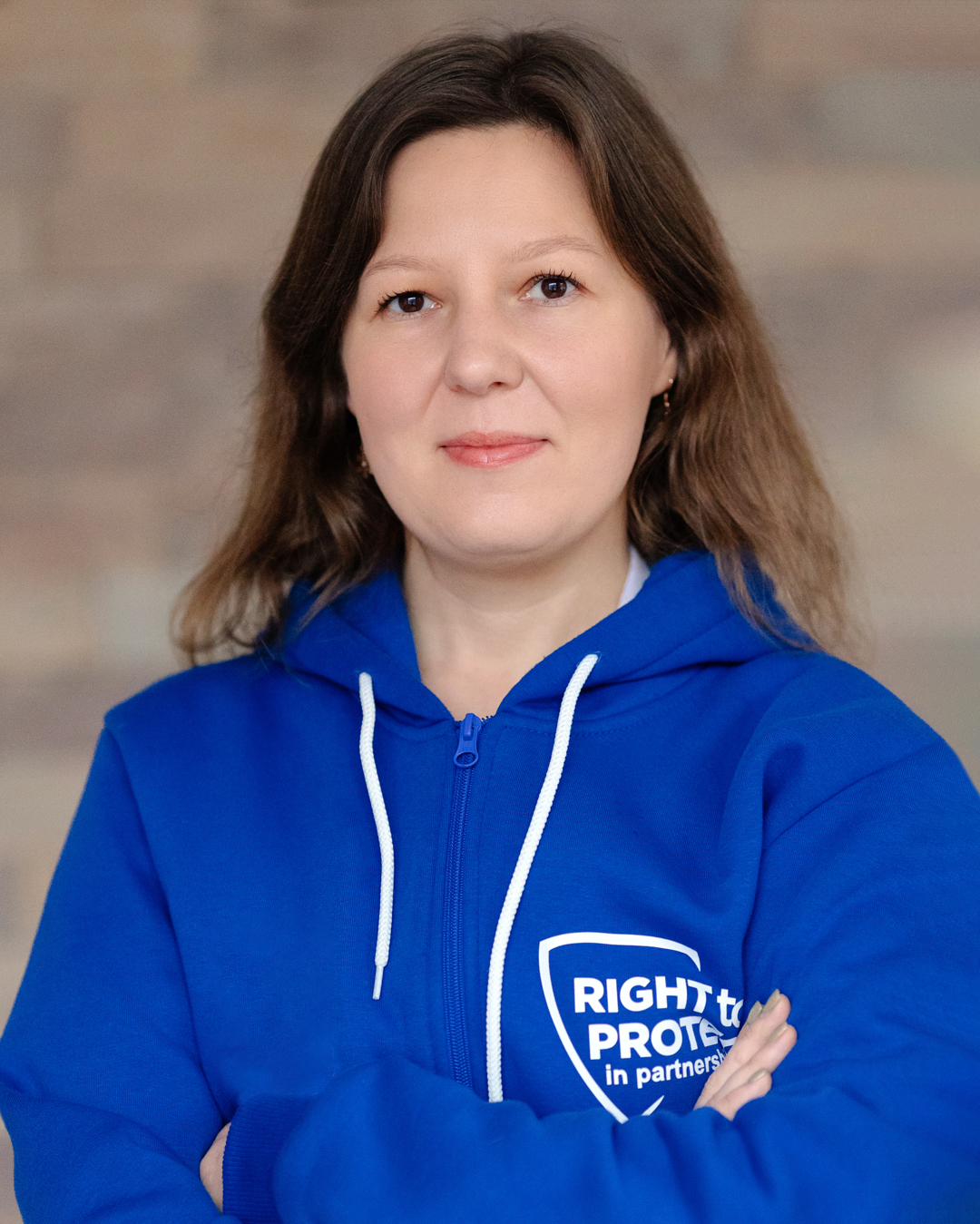
Sofiia Kordonets, Head of the Assistance to Refugees, Asylum Seekers and Stateless Persons programme direction of R2P:
“During the martial law in Ukraine, it is crucial to raise awareness among professionals who work directly with vulnerable population groups. We are glad that we were able to bring together representatives from different regions to discuss practices, challenges, and solutions in the field of protection of the rights of refugees, asylum seekers, and stateless persons. Such meetings not only raise the professional level, but also create a space for cooperation and support between colleagues.”
The second day of the training was devoted to discussing the problems of access to the nationality confirmation and statelessness determination procedures in Ukraine during the war. The lawyers discussed court practice regarding the restriction of rights for persons who are unable to use such procedures or who undergo them in violation of their rights.
The participants also discussed the problems refugees, asylum seekers, and stateless persons face, particularly their inability to get an education, find official employment, receive social protection, and social security or medical care in Ukraine, etc.
During the two days, they actively participated in the discussions, asking questions, sharing their own experiences, considering practical cases, and solving interactive tasks set by the trainers.

